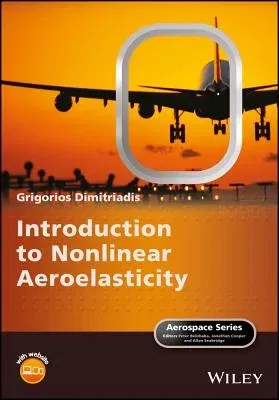Introduces the latest developments and technologies in the area of
nonlinear aeroelasticity
Nonlinear aeroelasticity has become an increasingly popular research
area in recent years. There have been many driving forces behind this
development, increasingly flexible structures, nonlinear control laws,
materials with nonlinear characteristics, etc. Introduction to
Nonlinear Aeroelasticity covers the theoretical basics in nonlinear
aeroelasticity and applies the theory to practical problems.
As nonlinear aeroelasticity is a combined topic, necessitating expertise
from different areas, the book introduces methodologies from a variety
of disciplines such as nonlinear dynamics, bifurcation analysis,
unsteady aerodynamics, non-smooth systems and others. The emphasis
throughout is on the practical application of the theories and methods,
so as to enable the reader to apply their newly acquired knowledge.
Key features:
- Covers the major topics in nonlinear aeroelasticity, from the
galloping of cables to supersonic panel flutter.
- Discusses nonlinear dynamics, bifurcation analysis, numerical
continuation, unsteady aerodynamics and non-smooth systems.
- Considers the practical application of the theories and methods.
- Covers nonlinear dynamics, bifurcation analysis and numerical methods.
- Accompanied by a website hosting Matlab code.
Introduction to Nonlinear Aeroelasticity is a comprehensive reference
for researchers and workers in industry and is also a useful
introduction to the subject for graduate and undergraduate students
across engineering disciplines.

